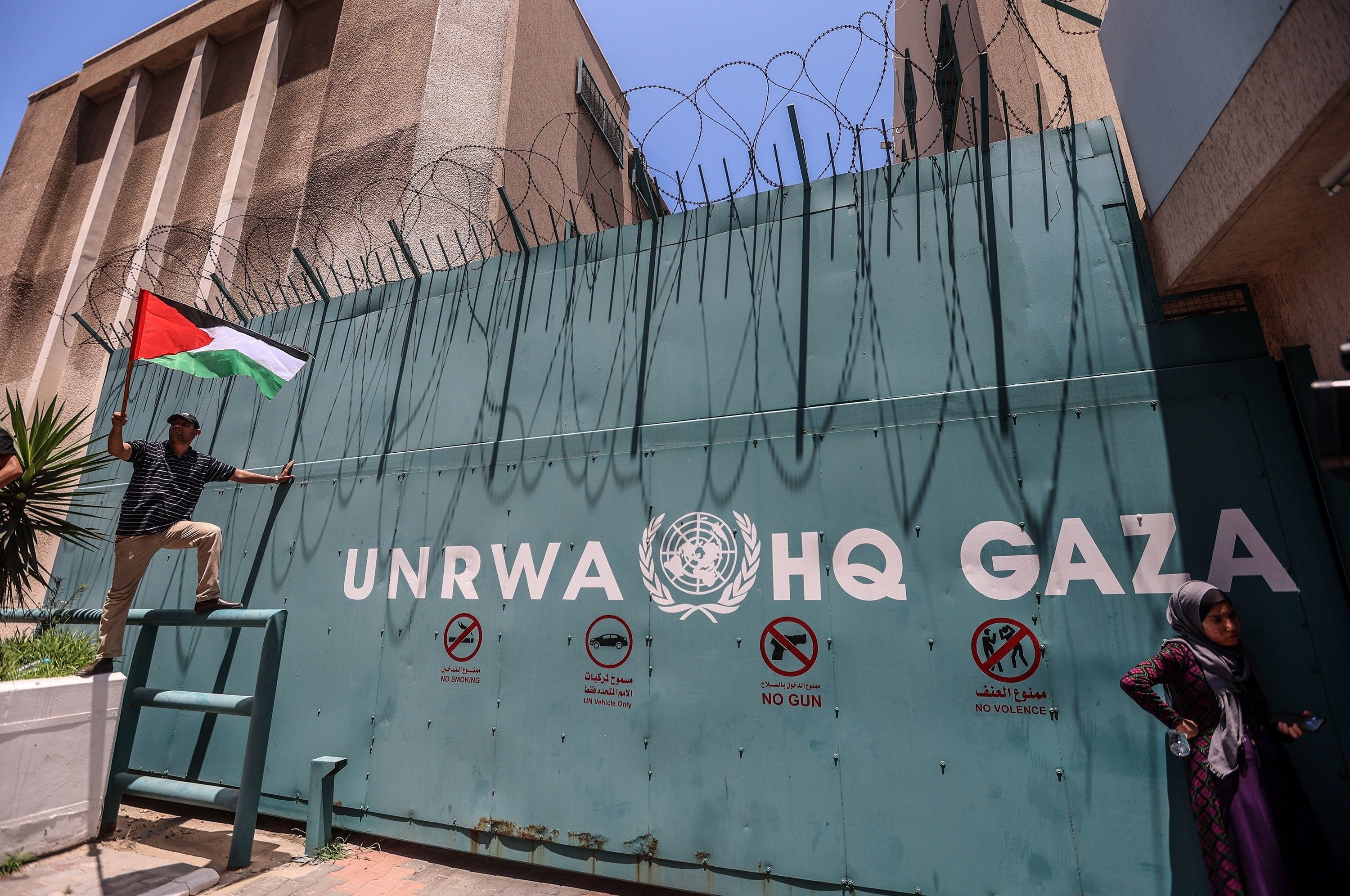U.S. officials secretly encouraged Turkey to increase its donations to the United Nations Relief and Works Agency (UNRWA) shortly after Washington suspended its own funding to the organization amid Israeli allegations that a dozen of UNRWA’s 13,000 Gaza-based employees participated in the October 7 attacks, according to Middle East Eye.
The news reveals a large gap between the Biden administration’s public and private messaging on UNRWA, which Israel has long accused of ties to Hamas. The White House joined Israel’s public crusade against the group, leading several other Western countries to cut off their own funding.
That drop in funds risks further aggravating the humanitarian crisis in Gaza, where famine has rapidly spread amid tight Israeli controls on aid for the population of the besieged strip. Without new funding, UNRWA officials say they would have to shutter operations by April.
The revelation suggests that U.S. officials are more circumspect about UNRWA’s alleged complicity in October 7 than previously known. U.S. intelligence agencies reportedly consider accusations against the 12 employees “plausible” but this assessment is “low confidence.”
American officials also reportedly asked Turkey to get Gulf countries to put forward money to fill the gap, though it’s not clear whether the U.S. ever directly asked Gulf states to make such a move.
The U.S. has also been unwilling or unable to confirm Israeli allegations that numerous other charities related to Gaza are really run by Hamas, according to the Wall Street Journal. Part of their hesitancy comes from the fact that, as with UNRWA, Israeli officials are expecting their counterparts to accept accusations provided without serious evidence. “Allies have been asking for credible evidence for a long time, but are still waiting,” a senior U.S. official told the Wall Street Journal.
UNRWA now claims that what little evidence Israel did provide about its employees came through “torture and ill-treatment” leading to coerced confessions, which are notoriously unreliable. The false confessions were used “to further spread misinformation about the agency as part of attempts to dismantle UNRWA,” a spokesperson for the group averred.
This growing distrust over Israeli claims may be part of why the European Union decided to resume its UNRWA funding late last week in a move that will keep the aid group above water for now. But it also leads to an obvious question: Why is President Joe Biden still publicly accepting Israel’s claims about the group as credible?
One possible explanation is domestic politics. Many in Congress have long been skeptical of UNRWA due to Israel’s years-long opposition to the organization, which staunch Zionists say perpetuates the conflict by granting refugee status to multiple generations of Palestinians born in camps. The current draft of a major U.S. military policy bill would prevent any funding from going to UNRWA, and House Republicans are hoping to drag the organization’s director before Congress for a grilling on Israel’s accusations against his former employees.
There is, however, political cover for the White House if they choose to use it. Just last week, 50 House Democrats urged their colleagues to approve funding for UNRWA in order to alleviate the humanitarian crisis in Gaza. “As the largest funder of UNRWA, it is critical that the U.S. continue to appropriate funds to support its important work,” the group, led by Reps. Pramila Jayapal (D-Wash.), Andre Carson (D-Ind.), and Jamie Raskin (D-Md.), wrote in an open letter.
As starvation sets in across Gaza, Biden will have to decide if he is willing to face down Congress and Israeli officials in order to surge aid and prevent further catastrophe. Time is of the essence, according to Matthew Hollingworth of the World Food Program, which also operates in Gaza.
“To have a situation today with half a million people facing famine in just five months is extraordinary at that scale,” Hollingworth told the Guardian. “There’s nowhere else in the world today with this many people at risk of famine. Nowhere. And it’s all man-made.”
- Israel blocks US food aid, setting up battle with Biden ›
- Media downplays lack of evidence in UNRWA employee scandal ›
- US intel has 'low confidence' in Israel's UNRWA claims ›
- UNRWA at the brink | Responsible Statecraft ›
- Samantha Power: Aid workers say crisis in Gaza 'unprecedented' | Responsible Statecraft ›
- Will Turkey eventually support Hezbollah? | Responsible Statecraft ›
- US, UN question Israel ban on aid org helping Palestinians | Responsible Statecraft ›
















